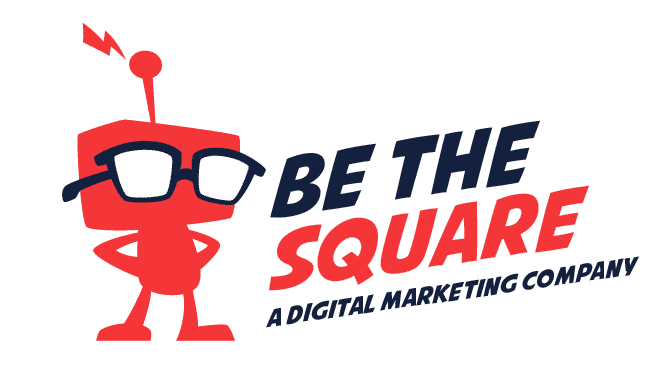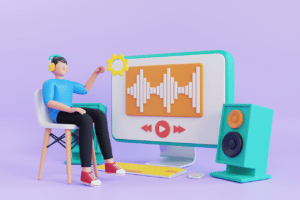SEO is a confusing topic. It’s hard to know if your SEO efforts are working, and it can be difficult to decide what kind of content you should be creating on your website in order to rank higher in Google search results. But there’s one thing that will always help your website rank better: creating helpful, interesting content that users want to find and read.
READ: What is SEO?

SEO will come naturally if you write helpful content.
SEO is not a secret art that you must learn in order to succeed. It’s simple, it’s straightforward, and it will come naturally if you’re focused on writing helpful content.
You can read more about what Google says about the Helpful Content Update here.
You just have to remember that you’re writing for real people, not search engines.
The most important thing is to write the best possible content. That means you have to put yourself in your readers’ shoes and think about what they want to read. If they’re looking for information on a specific topic, then you need to make sure that your content provides them with everything they need.
Stop worrying about SEO and start worrying about how users find and interreact with information on your website.
It’s time to stop worrying about SEO and start worrying about how users find and interact with information on your website.
SEO is a long-term strategy, not a short-term fix. It should be a natural byproduct of your website content, not something you have to force into place or rely on as a crutch for getting traffic in the first place.
Good SEO is all about helping users find information on your site – it’s not just about getting “search engine friendly” keywords into every sentence (and then hoping those keywords are relevant to what the user wants). Good SEO also ensures that when someone does arrive at your site through organic search, they can find what they need quickly and easily; nothing frustrates users more than poorly designed websites!
The best way to get users to your site is through good, relevant content. This means:
- Give them what they want.
- Make it easy for them to find what they need and understand how it can help them (and why).
- Keep it interesting, but not too long or complicated.
- Make sure you have a clear call to action at the end of each piece (without overwhelming your user with requests).
READ: Is SEO Right for You? The Ultimate SEO Investment Guide
Stop writing for search engines and start writing for humans.
This is the most important point. You can’t please both search engines and humans at the same time, so don’t try to do so. Write for your audience and forget about Google until later—when you’ve written something truly great, then go back to it and tweak it according to what Google tells you are the keywords that matter to its users.
In other words, don’t try to please both search engines and humans at the same time. Don’t write for Google, write for people.

Rankings will come naturally if you are writing helpful, useful, original content.
If you are writing helpful, useful, original content for your website, rankings will come naturally. This is because the search engines have been getting smarter in their algorithms and have created a focus on providing better results to users.
It’s also important to think about how your site is structured and navigated by users. Are there a lot of wasted clicks? Does it take too long for pages to load? These are things that can be optimized through testing and tweaking your code so that it loads quickly without sacrificing usability or content quality.
If you want to take your website to the next level and ensure that it’s optimized for search engines, contact us. We will help get your site indexed in a timely manner and make sure that it stays there.
SEO is changing and becoming smarter and more human focused.
It’s time to stop worrying about SEO and start worrying about your users.
Why? Because Google (and other search engines) are changing their algorithms to focus on the user experience. And in order to create a good user experience, you need to understand how your site works from the perspective of your users—not from the point of view of how it appears in search results.
The best way to do this is through user research. But what if you don’t have the time or budget for user research? If that’s the case, then here are some quick and easy tips for improving your website without doing any research at all:
- Make sure your website is fast.
- Make sure your website loads without any errors.
- Keep the amount of “above the fold” content to a minimum (the first screenful of text that users see).
To view the timeline of Google updates you can follow this link to Google’s announcement in Search Central.
Instead of worrying about quick SEO fixes, focus on your website structure, navigation and loading times.
You’ve probably read the advice to “write for the user first, search engines second”. But what does that mean?
Here are some tips for optimizing your site content:
- Focus on your website structure. The way you organize your pages will influence how easily visitors can find what they want. This also affects how search engines index the content—and whether they show it in search results or not! Check your website structure here.
- Make sure users can navigate around easily by using breadcrumb trails, clear menus and well-labeled links (i.e., avoid saying “click here”). For example, if you have a lot of products or services but only one main landing page for each category with lots of subcategories underneath it (e.g., Women > Dresses > Shift Dresses), consider creating a separate page for each top-level category so that visitors won’t miss anything important when clicking from one link to another.
- Take advantage of internal linking whenever possible so each page has relevant links back at least one step higher on its own site map.
- Ensure all graphics have alt text descriptions so screen readers don’t get confused when reading aloud webpages while vision impaired users can also understand them without any difficulty.
SEO results will happen if you provide a great user experience (UX) and answer the users question accurately and sufficiently.
SEO results will happen if you provide a great user experience (UX) and create an accurate and informative answer that answers your customer’s question.
If you really want to improve your search engine rankings, look into improving your UX. If you’re not sure where to start, try these tips:
- Make sure that your website is mobile-friendly.
- Ensure that the whole page loads quickly (no more than 2 seconds).
- Use titles that inform the user about what they can find on each page of your site before they even click through or scroll down.
- Make sure that your site is organized in a way that makes sense to users.
- Make sure that the information they’re looking for is easy to find, whether it’s on page one or page ten of your website.

Focus on providing a great user experience rather than focusing on your ranking.
Instead of worrying about your ranking, focus on providing a great user experience.
When you hear the words “user experience”, what do you think? Does it conjure up images of elaborate office spaces with beanbags and nap pods? Does it make you think about how many employees an organization has or how much money they spend on their offices? Or does it make you think about websites that customers use day in and day out—like Amazon, eBay and Facebook—and how easy they are to use?
If so, then congratulations! You’ve already got the right idea: user experience (UX) is all about making sure that users have a positive experience when interacting with your business online. By focusing on UX rather than SEO alone, you’ll be able to optimize not only for search engines but also for people who visit your website as visitors looking for information related to products/services they’re interested in buying or learning more about.
Conclusion
Although SEO is still important, the focus should be on providing users with a great experience rather than obsessing over rankings and traffic. Ranking high in search results is not always possible and if you are focusing too much on this then it will take away from your ability to create meaningful content or improve your website UX design.
Remember that as an industry we need to focus on creating better experiences instead of relying solely on algorithms and rankings
If you’ve been affected by the latest algorithm update or want to ensure that your rankings are protected, you can contact us directly at hello@bethesquare.com or call us on 833-277-8273





